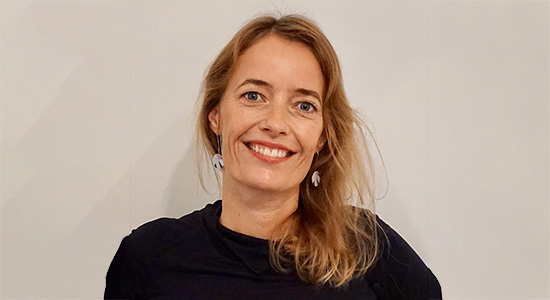Social inequality in Health in the ‘Prevention & Rehabilitation Group‘
Our goal is to provide novel insights on inequality in health and to identify modifiable factors and target points for interventions. We focus on social and psychosocial causes and consequences of health problems and diseases.

Our research includes epidemiological methods to study mechanisms and modifiable factors leading to social inequality in health. We focus on individual factors, social networks, living and working conditions, and health and social policies.
Further, we quantify and compare the expected health consequences of major policy initiatives and interventions from a clinical perspective. The health policy research is done in collaboration with policy makers at international, national, regional and municipal level. Since long, we put emphasis on the collaboration with the City of Copenhagen.
Tackling Health Inequalities and Extending Working Lives (THRIVE)
This project aims at investigating the differential impacts of health on the opportunity to work later in life in order to develop policies for extending working life that address these inequalities.
THRIVE is a collaboration between researchers from Liverpool, Stockholm, Toronto and Copenhagen. The project is supported by Innovationsfonden.
Contact persons: Ingelise Andersen, Natasja Koitzsch Jensen, Henrik Brønnum-Hansen, Karsten Thielen, Finn Diderichsen
Social Inequality in Ageing; Health, care and institutional reforms in the Nordic Welfare Model (SIA)
The sustainability of the Nordic model is a key issue in relation to an ageing population because of its universal, comprehensive and largely tax-financed welfare model. The policy concept of “active ageing” is largely an attempt to a solution, concerned with both increasing retirement ages, participation in society and our possibility to independent living at old age.
The SIA project is a collaboration between the Nordic countries and is organized into five work packages. The WP Health care needs and health care reforms: future needs and inequality impacts aims to answer the following questions:
The project is supported by Nordforsk.
Contact persons: Ingelise Andersen, Natasja Koitzsch Jensen, Karsten Thielen
The Equity and the socioeconomic impact of disease management programs in Denmark (EQUIP)
This research project aims to investigate two areas of health economics and health policy research. The first area of interest is related to the recent implementation of disease management programs (DMPs) in Denmark. A central part of the project will be to study the impact of socioeconomic position on the uptake and effects of DMPs (e.g. the effects of DMPs on socioeconomic inequality in health).
The second area of interest originates from the observation that mainstream health economic evaluation techniques do not explicitly incorporate concerns for equity despite the fact that aversion towards inequity is a core value in most health systems across the world.
The project is collaboration with researchers from CHEP (Department of Public Health, Copenhagen University), is led by Professor Karsten Vrangbæk kv@ifs.ku.dk.
The project is supported by the Novo Nordisk Foundation.
Contact persons: Henrik Brønnum-Hansen, Anne Mette Bender, Ingelise Andersen
It is of great policy relevance to quantify and compare scenarios of expected consequences on population health of major policy initiatives and interventions and thereby facilitate cooperation between policy makers within different sectors. Quantitative health impact assessment (HIA) tools are developed for this purpose. We are connected with the international research group, which developed the EU-funded DYNAMO-HIA model (Dynamic Model for Health Impact Assessment), and we have implemented this model for use in a local Danish context. Further, socioeconomic position has been included when estimating expected change in disease burden.
The model has been used for HIA scenarios for the population of Copenhagen. Thus, the effect on selected diseases and mortality of different intervention scenarios targeted tobacco and alcohol consumption, physical inactivity, overweight and traffic-related air pollution in Copenhagen have been quantified.
Another project, carried out by an industrial PhD, adjusted and applied different methods for quantitative HIA to analyze the effect of traffic policy and increased cycling, and a number of interventions targeted high alcohol consumption.
Our work on development of methods for quantitative health impact assessments is carried out in collaboration with the health administration in the Municipality of Copenhagen and other relevant partners.
Contact persons: Henrik Brønnum-Hansen, Anne Mette Bender
Social Relations and Cardiometabolic Conditions
Using secondary data from various countries, we investigate family and spousal resemblance in cardiometabolic disease status and related conditions and risk factors. We use established methods and experiments with new methodological approaches.
We also analyze the epidemiology of major conditions such as obesity.
Contact person: Jannie Nielsen
Disparities in the burden and progression of multi-morbidity across adulthood
Approximately one fourth of the adults in the U.S. suffer from multi-morbidity, experiencing two or more chronic cardio-metabolic diseases. For interventions to interrupt the progression to having multiple chronic conditions and disparities in multi-morbidity, it is necessary to understand how these unfold across adulthood.
In this NIH funded project, we will provide national estimates of the burden of multi-morbidity across adulthood, of the progression from one chronic disease to multi-morbidity, and of how trajectories of multi-morbidity contribute to health disparities.
Funding: NIH, National Institute of Aging
Period: 2022-2025
Contact person: Jannie Nielsen
Medlemmer
| Name | Title | Phone | |
|---|---|---|---|
| Andersen, Ingelise | Associate Professor Emerita | +4535327662 | |
| Bender, Mette | Assistant Professor | +4535328033 | |
| Brønnum-Hansen, Henrik | Emeritus | +4535327974 | |
| Foverskov, Else | Assistant Professor | +4535328974 | |
| Hougaard, Charlotte Ørsted | Data Administrator | +4535337217 | |
| Mortensen, Ole Steen | Clinical Professor | +4523328431 | |
| Nielsen, Jannie | Associate Professor | +4535331262 | |
| Thielen, Karsten | Clinical Associate Professor |

